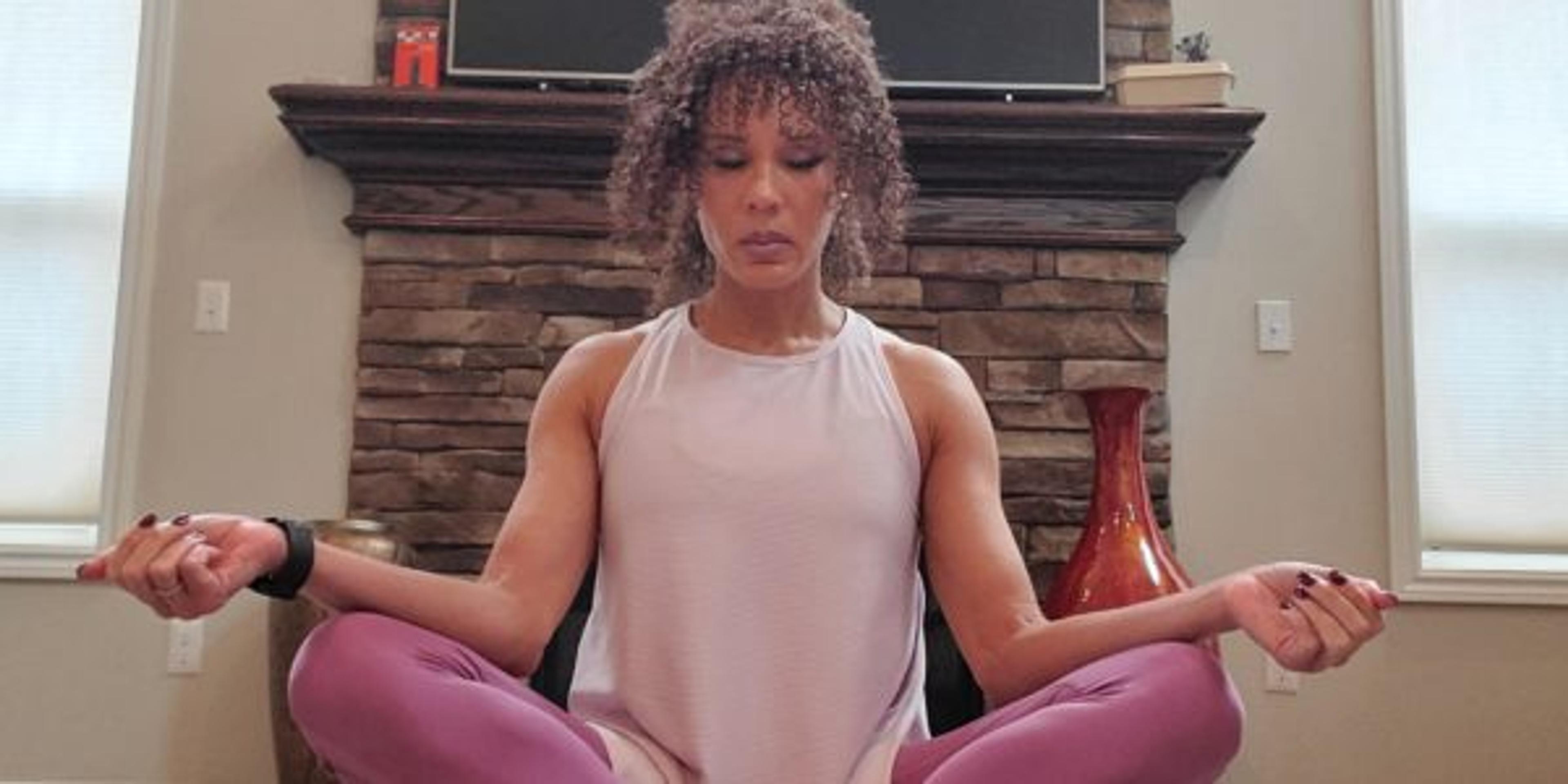Are You Physically and Mentally Fit?

Angela Moore
| 5 min read

Recently when my husband and I were having a conversation about mental health, I mentioned that oftentimes when people think of mental health, there is a tendency to actually think of mental illnesses such as depression, anxiety, post-traumatic stress disorder (PTSD) and bipolar disorder. I made the point that mental health should not be described any differently than physical health. In a conversation about what it means to be physically healthy, you would not list physical illnesses such as cancer, heart disease, diabetes and stroke.
We need to talk about mental health from the mental fitness perspective just like we talk about physical health from the physical fitness perspective, understanding that the integration of healthy lifestyle strategies can have a positive impact on both your physical AND mental health and that BOTH are essential for overall wellbeing.
What does it mean to be physically and mentally fit?
As a NASM Master Trainer, I describe someone as being physically fit if they have a healthy body composition with seven components: balance, flexibility, joint stabilization, core stabilization, cardiorespiratory efficiency, muscular endurance and muscular strength.
As a licensed therapist, I describe someone as being mentally fit if they have a positive state of well-being and an awareness of how they think, feel, and subsequently behave with seven components: work/life integration or balance, flexibility (ability to adjust), agility, emotional stability, mental stamina, resilience and mental strength.
And just as you must integrate healthy lifestyle strategies into your day to improve your physical fitness — physical activity and/or structured exercise and balanced nutrition, you also need to integrate healthy lifestyle strategies to improve your mental fitness — relaxation practices like meditation, deep breathing and yoga, work/life integration or work/life balance techniques and effective time management activities.
Improving your physical fitness
According to the current Physical Activity Guidelines for Americans, adults need 150 minutes of moderate-intensity physical activity and 2 days of muscle strengthening activity each week. As I have mentioned in my other articles Don’t Get Stressed About Working Out and Busy? Yes! Believe It Or Not, You Can Be Healthy Too!, you can integrate short bouts of physical activity and exercise throughout the day and throughout the week for significant health benefits.
Cardiovascular and strength training exercises don’t have to be performed for long periods of time to be effective. The key is to make sure that your total effort adds up to the necessary effort to achieve your health goals.
Adults should also consume nutrient-dense foods that supply the essential vitamins and minerals and other health promoting elements the body needs to survive and thrive and limit or eliminate added sugars, sodium, saturated fat and unhealthy beverages. It may sound cliché, but you truly are what you eat. Deciding to eat healthy foods will not only help you achieve and/or maintain a healthy body composition, but also help you maintain a healthy state of mind. You must take care of your mind, just like you take care of your body.
Improving your mental fitness
Numerous studies suggest that integrating relaxation practices such as progressive muscle relaxation, breathing exercises or diaphragmatic breathing, meditation and guided imagery or visualization and yoga — hatha (incorporates most common forms of yoga), vinyasa, restorative, and many others — have a significant positive impact on the body. And a few minutes of intentional relaxation such as progressive muscle relaxation and breathing exercises like short bouts of physical activity can provide significant health benefits.
I must say however, that when it comes to meditation, guide imagery, visualization, and yoga, I believe that it is more beneficial to create the time and the space to fully “let yourself go” so that your body and your mind can let go of anything that might be causing you negative stress. While you could squeeze in a five or 10-minute meditation or perform a few yoga poses if you are not able to dedicate the longer time, I really think that it is important to give yourself the gift of time and space to let yourself go when you are not rushing to or thinking about the next thing, you are simply being.
Lastly, it may seem impossible to integrate mental and physical health activities into a busy day if you feel you are struggling with time management and struggling to balance your personal and professional life. I have found that creating a realistic, consistent, and intentional schedule helps with time management and work/life balance and or work/life integration.
- Realistic: Schedule allows adequate time for completion of tasks and activities.
- Consistent: Schedule allows you to maintain a routine so that you can measure effectiveness and adjust when necessary.
- Intentional: Schedule is based on what you “intend to do” and not on “what simply happens”.
While this article was motivated by a conversation with my husband about people’s tendency to think and talk about mental illness, your time and energy would be better spent not on conversations about illness but rather on conversations about health, understanding that by learning how to integrate healthy lifestyle strategies into your daily life, you will ultimately become physically and mentally healthier, not only improving your life but also how you live it.
Opinions expressed in this blog belong solely to the author and do not necessarily reflect the opinions or beliefs of Blue Cross Blue Shield of Michigan or its subsidiaries and affiliates.
Photo credit: Courtesy of Angela Moore





